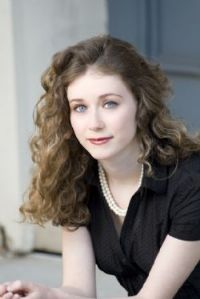|
Symphony
FROM THE NEW WORLD TO THE OLD WORLD
by Peter Lert
Saturday, June 14, 2025
Chamber
MC2 DUO RECITAL CLOSES 222'S SEASON
by Terry McNeill
Saturday, June 14, 2025
Choral and Vocal
CANTIAMO SONOMA'S LUSCIOUS A CAPELLA SINGING IN SEASON ENDING CONCERT
by Pamela Hicks Gailey
Sunday, June 8, 2025
Symphony
SRS SEASON ENDS WITH RESOUNDING TA-TA-TA-BANG
by Terry McNeill
Sunday, June 1, 2025
Symphony
YOUTHFUL VIRTUOSITY ON DISPLAY AT USO'S MAY CONCERTS
by Peter Lert
Saturday, May 17, 2025
Symphony
MYSTICAL PLANETS AND LIVELY GERSHWIN ORTIZ AT FINAL SRS CONCERT
by Peter Lert
Sunday, May 4, 2025
Symphony
VSO'S CONCERT MUSIC OF TIME, MUSIC OF PLACE
by Peter Lert
Sunday, April 27, 2025
VOCAL ELEGANCE AND FIRE AT THE 222'S RECITAL APRIL 26
by Pamela Hicks Gailey
Saturday, April 26, 2025
CANTIAMO SONOMA SINGS AN INSPIRED GOOD FRIDAY MOZART REQUIEM CONCERT
by Pamela Hicks Gailey
Friday, April 18, 2025
DRAMATIC SHOSTAKOVICH SYMPHONY CLOSES PHILHARMONIC'S 25TH SEASON
by Terry McNeill
Sunday, April 13, 2025
|
 |
 Soprano Nola Richardson |
A BRIGHT AXIS FOR ABS HANDEL AND BACH IN MARIN
by Joanna Bramel Young
Friday, January 23, 2015
American Bach Soloists’ opening concert of their 26th season, with performances of Bach’s beloved Fourth Brandenburg Concerto and Handel’s touchingly pastoral Acis and Galatea. The Fourth Brandenburg is one of six that Bach sent as a gift to the Margrave Christian Ludwig of Brandenburg in 1721, possibly as a “thinly veiled job application,” according to Steven Lehning, who gave a fascinating pre-concert lecture. Surprisingly, he said, this amazing gift was never acknowledged, and the manuscripts were later found among court documents after the Margrave’s death.
The Brandenburg Concerto in G displayed the violin as its principal solo instrument, but two alto recorders also shared the spotlight. The Violino Principale, in the first and third movements, rose above the orchestral parts in sudden bursts of brilliance, and concertmaster Elizabeth Blumenstock made it all look effortless. The two alto recorders, in the capable hands of Judith Linsenberg and Debra Nagy, negotiated the intricate recorder parts with equal ease. In the second movement (Andante) the recorders took center stage playing a sighing melody, with the solo violin relegated to the bass line. After the rhythmic drive of the first movement, Ms. Lindenberg’s recorder cadenza in the Andante commanded the audience’s attention as she drew it out with her own original ornaments and sensitive phrasing, with the give and take among the soloists adding to the excitement of the concerto.
The last movement was a stately fugue in cut time -- begun by the violas, picked up by the other strings, and then further enhanced by the two recorders playing in unison. They then separated, as the fugue melody was tossed about between them. As the orchestra came to the end of a phrase the three solo instruments “took off” in a lovely trio all by themselves. As the movement continued, the solo violin entered with shimmering, virtuosic runs and double stops that Ms. Blumenstock executed with total mastery.
Acis and Galatea is one of Handel’s most beloved works. The composer arrived in London in 1712, after spending several years in Italy, and quickly became part of an “Arcadian circle” of well-known poets and other artists, and was inspired to create two works: Esther and Acis and Galatea. Acis is a pastoral drama which is based on a story from Ovid’s “Metamorphoses.” The four vocal soloists were Nola Richardson, soprano: Galatea, tenor Kyle Stegall: Acis, tenor Zachary Wilder: Damon, and baritone Mischa Bouvier: Polyphemus. The short work in two acts tells the story of the love between the shepherd Acis and the nymph Galatea. Damon is a friend of Acis, and the “heavy” in the story is the monstrous one-eyed giant Polyphemus.
Handel scored the work for four singers, orchestra and chorus. Conductor Jeffrey Thomas’ solid direction drew all of the dramatic emotion from the music, pulling the audience into the pastoral story. The chorus began with the graceful “Oh the pleasure of the plains! Happy nymphs and happy swains!” The tiny sopranino recorder, played by Ms. Linsenberg, accompanied Galatea in her Air, “Hush ye pretty warbling quire!” and the birdlike twitters echoing Ms. Richardson’s soprano in the da capo aria.
Both tenors sang with passion and emotion, dramatizing Handel’s text. In the second half, Polyphemus appeared for the first time, and Mr. Bouvier’s low, menacing and powerful voice added a new dramatic affect to the conclusion of the work. A comic element was added with the tiny sopranino once again accompanying the giant’s recitative “I rage -- I melt -- I burn! Bring me a hundred reeds to make a pipe....”
Zachary Wilder must be mentioned for his expressive and lyrical singing in the Air, “Would you gain the tender creature, softly, gently, kindly treat her,” where Damon gives Polyphemus advice on how to woo Galatea. The oboes echo him as he sings the words “softly, gently... Suff’ring is the lover’s part.” In a jealous rage Polyphemus kills Acis, who is reincarnated as a beautiful fountain -- with orchestra and recorders playing a soft dotted melody – that sounded like rippling water. Oboists Debra Nagy and Stephen Bard could be heard throughout the entire work and played with perfect intonation and carefully nuanced expressiveness.
At the conclusion of the concert all was made whole by the ABS’s encore of the chorus singing “Happy we! What joys we feel! What charms we see!” This has to be one of the happiest songs ever written. Everyone left the church with light hearts and a smile on their faces. This concert was a fitting beginning for another wonderful season of American Bach Soloists, and their February 27 concert features Bach’s towering St. Matthew Passion.
|

